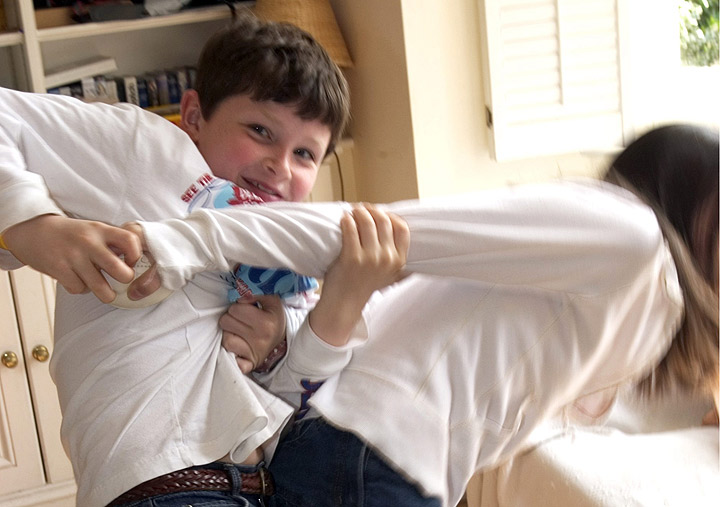TORONTO – A new study reports that rivalry among siblings can be as emotionally distressing and damaging as bullying by a peer or classmate.

Published in the July issue of the journal Pediatrics, the study “Association of sibling aggression with child and adolescent mental health” suggests fights between siblings—ranging from toy-snatching to name-calling and physical aggression—can hurt a brother or sister’s mental health, causing depression, anxiety and anger in kids and teens.
“Even kids who reported just one instance had more mental health distress,” says Corinna Jenkins Tucker, lead author of the study and associate professor of family studies at University of New Hampshire. “Our study shows that sibling aggression is not benign for children and adolescents, regardless of how severe or frequent.”

Get weekly health news
While bullying by peers and classmates is generally thought to be more serious than sibling aggression, researchers found that the mental health of those experiencing property and psychological aggression, whether from siblings or peers, did not differ.
The study looked at the effects of physical assault with and without a weapon or injury, property aggression like stealing something or breaking a siblings’ things on purpose, and psychological aggression such as saying things that made a sibling feel bad, scared, or not wanted around.
Of the 32 per cent of surveyed children who reported some type of sibling victimization in the past year, researchers found that mental health distress was greater for children under the age of nine than it was for adolescents between the ages of 10-17 who experienced similar mild sibling physical assault.
Children and adolescents who experienced other psychological and property sibling aggression, however, were similarly affected.
“If siblings hit each other, there’s a much different reaction than if that happened between peers,” said Tucker. “It’s often dismissed, seen as something that’s normal or harmless. Some parents even think it’s beneficial, as good training for dealing with conflict and aggression in other relationships.”
Researchers say parents and guardians need to show their kids they have zero tolerance for bullying.
About the study
Researchers analyzed data collected by the University of New Hampshire’s Crimes against Children research center and from the center’s National Survey of Children’s Exposure to Violence (NatSCEV), a national sample of 3,599 children, ages one month through 17, who lived with at least one sibling.






Comments